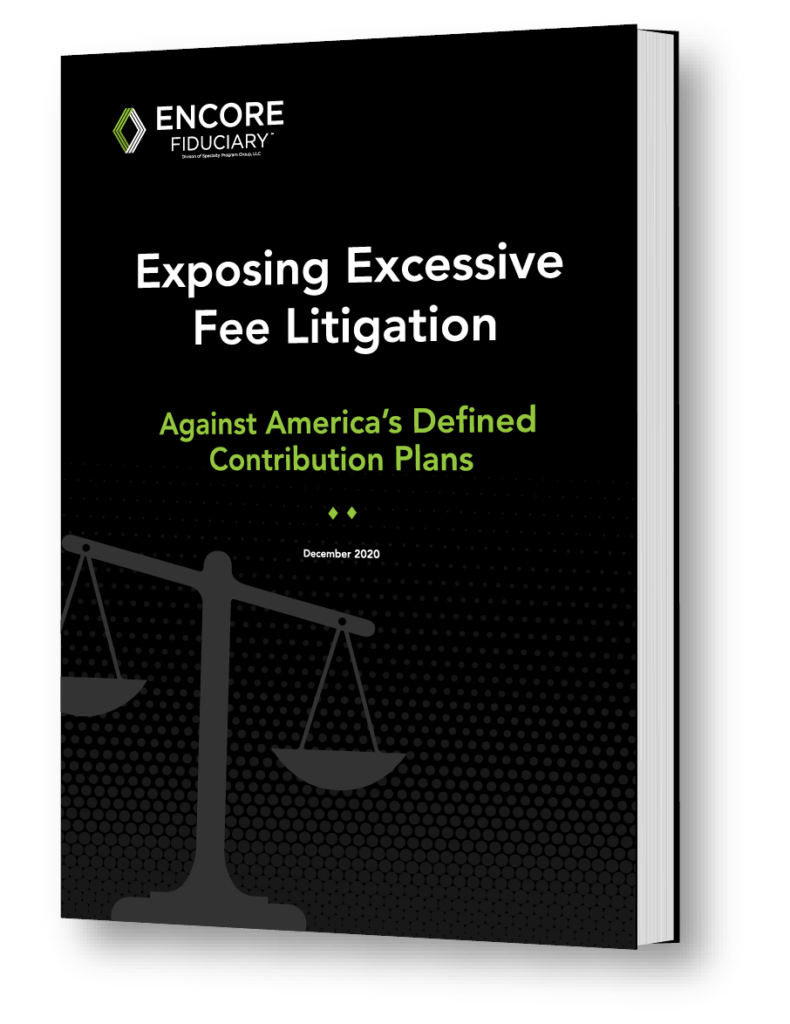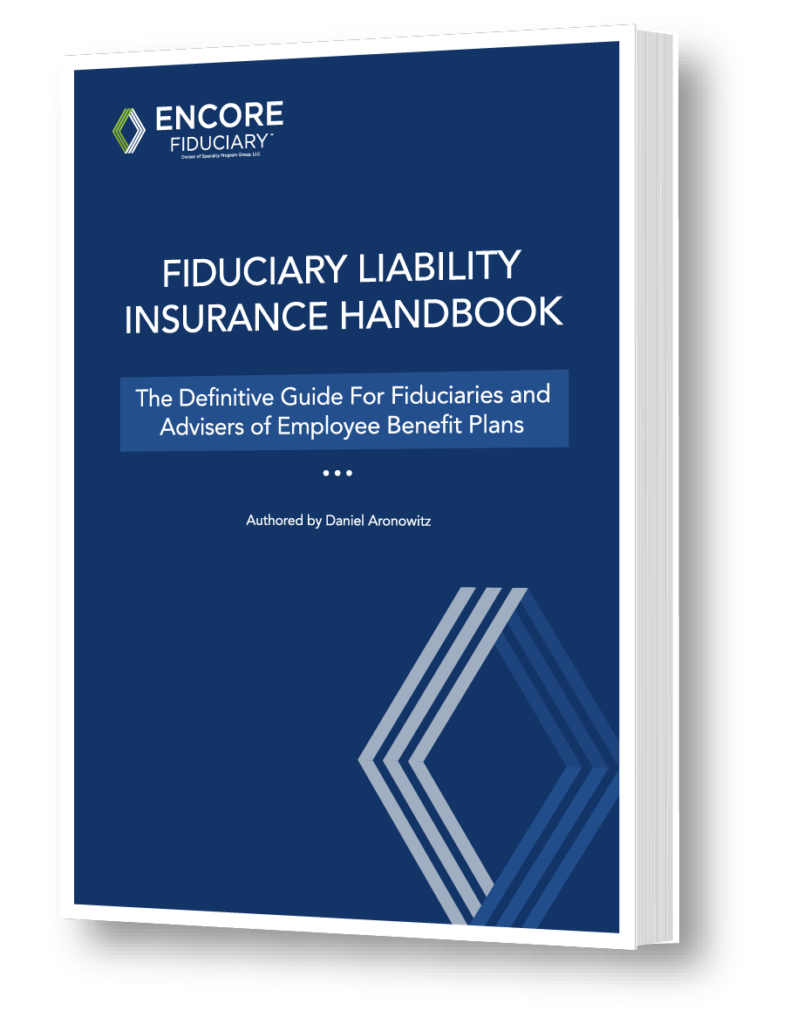By Daniel Aronowitz
The fiduciaries of America’s retirement plans are being dragged into the culture wars over ESG investments. On May 11, the former Secretary of Labor for the Trump Administration sued three New York City governmental retirement plans for divesting billions of dollars from fossil fuel investments. And then on June 2, a Kansas products liability class-action law firm filed a purported ERISA class action in Texas against two defined contribution plans sponsored by American Airlines. The Texas lawsuit alleges a “historic breach of fiduciary duty,” quoting a Wall Street Journal opinion editorial penned by the Oklahoma and Utah state treasurers, for allegedly including a significant number of costly and underperforming ESG investment options in the plans.
On the opposite side of the spectrum, Amazon and Comcast face climate change shareholder resolutions to protect beneficiaries in company-sponsored retirement plans from Vanguard target-date investments that allegedly fail to protect retirement savings against long-term climate risk. Similarly, a California pension bill seeks a $15 billion divestment from fossil fuel investments in CalPERS and CalSTRS – a bill to which executives of both retirement systems have objected.
Plan fiduciaries are caught in the political cross-fire. One side claims that ESG investments are a historical breach of fiduciary duty; the other side claims that plan fiduciaries must take ESG into account with every plan investment to ensure long-term returns and save the planet.
As we show below, these activist crusades are all flawed from a fiduciary perspective, revealing that there is an ulterior and improper political motive at work here. First, there is no standing under well-settled law for the breach of fiduciary duty case against the New York City governmental defined benefit plans, because there is no proof that any plan beneficiary has any benefits impaired. Second, the claim that American Airlines offers over twenty-five ESG funds for its plan participants is false. Unless we are mistaken, the American Airlines plans do not offer any of the alleged ESG funds. No company in America, to our knowledge, offers twenty-five ESG funds. Third, companies like Amazon offer index and other diversified investments that include broad-based exposure to the largest and best companies in America. Any purported climate change exposure is a risk shared by every American corporation with inherent profit motives to avoid financial risks, including climate-change risks. There is no unique prejudice to any plan participant in a corporate-sponsored defined contribution plan invested in the S&P 500 or any American company.
This is all political theatre brought by biased activists. There is no merit to any of the litigation or the corporate resolutions. But unfortunately, the retirement plan fiduciaries are pawns in culture wars being waged by activists.
1. The ESG Case Against New York Governmental Plans
On May 11, 2023, Eugene Scalia and the Gibson, Dunn & Crutcher LLP law firm filed a lawsuit captioned Wayne Wong v. New York City Employees’ Retirement System, in the Supreme Court of the State of New York, County of York. The lawsuit alleges the New York City Employees’ Retirement System (NYCERS), the Teachers Retirement System of the City of New York (TRS), and the Board of Education Retirement System of New York (BERS) breached their fiduciary duties under the common law of trusts and section 136-1.6 of New York’s regulatory standards for actuarily funded public retirement systems. The complaint further alleges that the plan fiduciaries abused their control over plan assets by divesting the plans of approximately four billion dollars of holdings in companies involved in the extraction of fossil fuels “in a misguided and ineffectual gesture to address climate change.” The complaint alleges that the fiduciaries of all three plans caved to a three-year pressure campaign mounted by public officials and other activists, by voting to divest their plans of all holdings in securities related to fossil fuel companies. The complaint asserts that the “politically-driven” votes to divest fossil fuel investments and allocate more of the plans’ assets to “green” investments has “no basis in sound investment strategy.” Finally, the complaint alleges that the “blunderbuss divestments” by the plans also conflicts with the standards for fiduciary conduct articulated by the new Biden Administration rule regarding ESG investing by private plans, which requires “fiduciaries to focus on relevant risk-return factors and not subordinate the interests of participants and beneficiaries (such as by sacrificing investment returns or taking on additional risk) to objectives unrelated to the provision of benefits under the plan.”
An interesting aspect of the breach of fiduciary claims against the New York City plans is the allegations that other New York City and other governmental plans across the country have rejected the pressure to divest from fossil fuel investment as “ineffectual” and a “inappropriate” breach of fiduciary duties. The complaint cites the California State Teachers’ Retirement System (CalSTRS), Maine Public Employees Retirement System, Seattle City Employees’ Retirement System, and the Colorado Public Employees’ Retirement Association as taking contrasting positions in refusing to divest from fossil fuels as inconsistent with fiduciary duties.
The obvious flaw in this case is the lack of standing for plan participants, and certainly for a non-profit that serves as a watchdog for public union malfeasance. In Thole v. U.S. Bank, the United States Supreme Court held that individual pension plan participants cannot sue their employer for a fiduciary breach if their own benefit has not been cut or otherwise altered. The lawsuit attempts to allege that one of the three New York plans is under 80% funded, but this does not establish standing because no benefits are impaired. The Thole precedent was adopted for governmental plans in Overstreet v. Mayberry, as Member and Beneficiary of Trust Funds on behalf of the Kentucky Retirement Systems, No. 2019-SC-000041-TG (decision July 9, 2020) in a retirement system with less than 25% funding. There is no standing for this lawsuit, and the sophisticated Gibson Dunn lawyers bringing the case know this law. The case is likely funded by right-wing interest groups who have an ulterior political agenda. It is not about winning – it is about pursuing this anti-ESG agenda.
2. The ESG Case Against American Airlines
On June 2, 2023, Rex Sharp, a lawyer from Kansas whose website touts massive $350m+ EpiPen class action settlements, filed an ERISA breach of fiduciary lawsuit against American Airlines, the company’s benefit committee, Fidelity Investments and Financial Engines Advisors. Bryan P. Spence v. American Airlines, Inc., No. 4:23-cv-00552-O [N.D. Texas filed June 2, 2023]. The Texas lawsuit alleges that plan fiduciaries for the American Airlines 401(k) Plan and American Airlines 401(k) Plan for Pilots breached their fiduciary duties “by investing millions of dollars of American Airlines employees’ retirement savings with investment managers and investment funds that pursue leftist political agendas through environmental, social and governance (ESG) strategies, proxy voting, and shareholder activism – activities which fail to satisfy these fiduciaries’ statutory duties to maximize financial benefits in the sole interest of the Plan participants.” Without any proof, the lawsuit claims that ESG funds are more expensive, and have “underperformed the broader market by more than 250 basis point per year, an average 6.3% return compared with a 8.9% return.” There is no citation for any of the alleged studies claiming underperformance of ESG returns.
The key claim in the lawsuit is in paragraph 63 alleging that “[d]efendants have selected and included a number of ESG funds as investment options under the Plan, including, but not limited to,” twenty-five mutual funds in a list ranging from American Century Sustainable Equity Fund I to the USAA Sustainable World Fund. In addition, the Complaint asserts in paragraph 65 that “[d]efendants have also included in the Plan funds that are not branded as ESG funds, but are managed by investment companies who have voted for many of the most egregious examples of ESG policy mandates, on issues such as divesting in oil and gas stocks, banning plastics, requiring ‘net zero’ emissions, and imposing ‘diversity’ quotas in hiring.” In paragraph 66, the Complaint alleges that the American Airlines plans included investment options from eighty-six investment advisors with non-branded investment options that voted on leftist ESG policies.
The Department of Labor under the Trump Administration issued regulations that are considered to be adverse to ESG investments, and the current DOL has issued proposed ESG regulations that is more neutral to ESG investments. Whether American Airlines plan fiduciaries breached their fiduciary duties will be judged under these fiduciary guidelines. Not surprisingly, the superficial lawsuit fails to mention any of these guidelines. Again, it is a political ploy.
But here is the most important issue: to our knowledge, the two American Airlines sponsored defined contribution plans contain none of the offending ESG investments. The American Airlines 401k plan has approximately $12.4B in assets with 110,000+ participants; and the Pilots plans has approximately $8.5B in assets with 117,000+ participants. The plan administration and investments are nearly identical for both plans, with super low recordkeeping fees from Fidelity and low investment fees in nineteen investment options, including a custom target-date suite from T. Rowe Price at investment fees that are well below what it offers to other retirement plans. None of these investments are ESG-branded investments as alleged in the lawsuit. And T. Rowe Price is not listed as one of the eighty-six investment firms that have voted proxies with ESG objectives. The largest investments in the American Airlines plan are: $1.6b in a U.S. Large Cap Stock Index funds; $1.3b in the 2030 TRP target-date fund; $1.2b in the 2025 TRP target-date fund; $741.6m in the US Bond Index fund; and $637.3m in a Stable Value Fund. None of these constitute ESG investments that allegedly follow a leftist agenda at the expense of maximizing returns to plan participants.
The case needs to play out, but based on our research, the plaintiff’s law firm and his local counsel has rushed into court with a false complaint. We may not have all of the facts, but something is really fishy here.
Stand back and consider why this complaint makes no sense. First, the complaint is alleging that American Airlines has offered at least twenty-five ESG investment options. But most large plans in America no longer offer lots of investment options. As the ICI-Brightscope study confirms, most plans offer approximately 20 investment options [if you include all target-date fund vintages as one investment option]. So it makes no sense that American Airlines would offer so many ESG-focused investment options. Second, most plan fiduciaries have been wary of offering ESG investment funds because of the DOL’s constantly changing fiduciary standard for consideration of ESG investments. Based on our underwriting of thousands of plans, most plans offer no ESG investment options; and those plans that do offer some exposure to ESG, because many plan participants want ESG investments, usually offer only one ESG investment option. The most common ESG offering is the Vanguard Social Index Fund. If you were trying to give the benefit of doubt to this plaintiff’s law firm, it could be argued that they are relying on investment options in the brokerage link. But even if there was a fiduciary responsibility for monitoring all investments accessed through the brokerage link, we do not believe that is what this complaint is alleging. If so, then every company with a brokerage link could be sued.
Something is seriously amiss with this lawsuit. To our knowledge, no company-sponsored defined contribution plan in the entire country offers participants twenty-five ESG funds in their 401k plan. We would advise that you make no judgments as to this lawsuit until American Airlines is given the opportunity to respond on the record in the litigation. If our assumptions are right, the Sharp law firm has the resources from its EpiPen litigation settlements to pay the sanctions that it deserves for maligning American Airlines and its benefits committee with a frivolous lawsuit about ESG investments that are not in the plan.
3. Climate Change Resolutions Against Company-Sponsored 401k Plans
Whereas the lawsuits against the New York City governmental and American Airlines plans allege a breach of fiduciary duty for taking ESG into account in plan investments, the shareholder advocacy group As You Sow is taking the opposite tack by demanding major corporations include ESG options in their plans. As You Sow filed proxy proposals for shareholder votes with both Amazon and Comcast, requesting the boards of both companies “publish a report . . . disclosing how the company is protecting plan beneficiaries with a longer investment time horizon from climate risk in the company’s default retirement options.” The group says the report should include, at the board’s discretion, an analysis of:
- The extent to which carbon-intensive investments in the default investment option contribute to greater risks to beneficiaries and lower plan performance over time; and
- Whether carbon-intensive investments in the default investment option put younger beneficiaries’ savings at greater risk than the plans of those nearer to retirement.
In a statement filed with the proposal, As You Sow writes that Amazon has taken actions to address climate change by pledging to reach net-zero Scope 1 and Scope 2 greenhouse gas emission emissions by 2040 and to use 100 percent renewable energy by 2025. “Yet even while it transitions its business away from fossil fuels, the company’s 401(k) retirement plan… invests significantly in companies that contribute to climate change, jeopardizing workers’ life savings.”
As You Sow explains that employees’ retirement funds are automatically invested in the plan’s default investment option unless workers choose otherwise, and that the plan’s default offering invests significantly in fossil fuel companies and companies contributing to deforestation. “By investing employees’ retirement savings in companies with outsized contributions to climate change, Amazon is generating climate risk, including transition risk and long-term systemic risk, to workers’ portfolios,” As You Sow adds. “Amazon’s default 401(k) choice risks compromising its obligation to select retirement plan investment options in the best interests of its plan participants, including those with retirement dates more than a decade out.”
As You Sow is alleging that Amazon workers are “investing in their own destruction.” The absurd statement reveals the lack of seriousness of these shareholder proposals. But it is important to understand the actual default option offered by the Amazon 401k plan to its employees. The Amazon plan offers the leading Vanguard Retirement index target-date funds [at the lowest rate that Vanguard offers] as the QDIA. These are highly regarded investments that are designed to diversify risk on an age-adjusted basis and maximize a participant’s retirement. Again, the key is diversification – that is what Vanguard does in these investments. Even if there was somehow climate-change financial risk, the investments provide diversification against all types of risk, including the purported financial risk of climate change. And even if these shareholder proposals could somehow square with fiduciary responsibilities – and they cannot – the Vanguard funds are neutral with respect to climate risk. The individual companies in the index are all incentivized to maximize profit, and that includes adjusting for any financial detriment that could be caused by long-term climate change. The proposals are comical.
The only redeeming value of the Amazon shareholder proposal is that, unlike the case against American Airlines, As You Sow was honest about the Amazon plan. As You Sow correctly disclosed that Amazon has the Vanguard index target-date funds as the QDIA. The plan also offers a few additional State Street and Vanguard index funds to provide exposure to other asset classes. One of the Vanguard index funds offered is the Vanguard FTSE Social Index Fund in the institutional share class. As You Sow bemoans that only two percent of the plans assets are invested in this social choice index fund. As You Sow then claims that it polled Amazon employees, and a majority of them wanted ESG investments. But As You Sow seems to miss the obvious fact that these same employees had the choice to invest 100% of their assets in the Social Choice Investment, but did not do so. This is completely lost on As You Sow, but it reveals the false premise of their shareholder resolution.
But there is a more important point in As You Sow’s public description of the Amazon plan. If you include the Amazon stock option, the Amazon 401k plan offers fifteen investments with a QDIA in Vanguard target-date funds. The plan offers one ESG-type investment for participants who want to exercise some sort of social choice. But not twenty-five ESG investments. The Amazon plan is standard for every mega plan in America today. So when you read a lawsuit claiming that American Airlines did something radically different than every other large corporation in America by offering twenty-five ESG investments, please be skeptical. Treat it like the fake news that it is, and wait for the company to respond [and hopefully to seek sanctions].
The Euclid Perspective
Our advice to plan fiduciaries is to be wary of any ESG investment products until there is clarity on the liability exposure. Plan fiduciaries are caught in the cross-fire of highly charged political crusades. Damned if you do, and damned if you don’t. You are innocent victims of America’s culture wars and sitting ducks for America’s plaintiffs’ bar. We believe that the governmental lawsuit against the New York City plans will be dismissed for lack of standing, and the lawsuit against American Airlines will be dismissed for alleging false facts regarding ESG investments. But right now plan fiduciaries cannot win when they are collateral damage in America’s culture war.
It is a sad state of affairs. We would like to think that this too shall pass, but we live in strange times.


